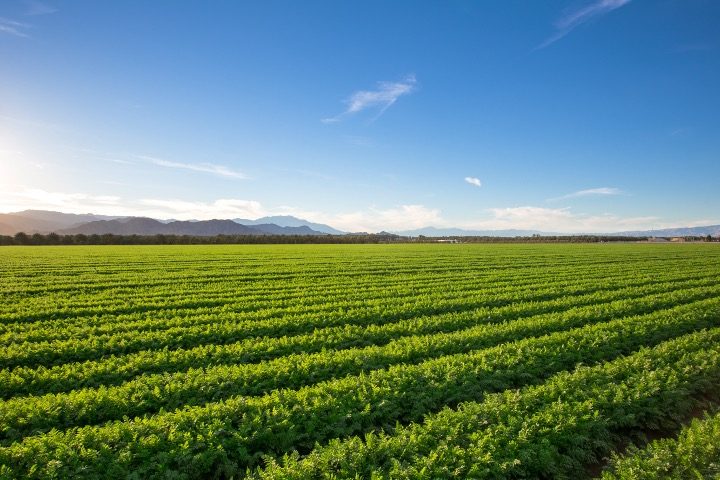
American sovereignty and agricultural independence have gone down under Joe Biden’s watch, and Beijing is more than happy to reap the benefits.
Per a probe by the U.S. Government Accountability Office (GAO), the Biden White House has been failing to properly keep track of the foreign ownership of American farmland — and does not even have a plan in place to start tracking that information.
As Fox News noted, the GAO report found that the U.S. Department of Agriculture (USDA) has not shared timely data on foreign entities’ investments in agricultural land in the United States, as it is required to by the 1978 Agricultural Foreign Investment Disclosure Act (AFIDA).
Published on Thursday, the report reads: “Sharing current data could help increase visibility into potential national security risks related to foreign investments in U.S. agricultural land. USDA implements AFIDA across field offices and headquarters, but its processes to collect, track, and report key information are flawed.”
According to the report, the USDA collects AFIDA data on paper forms filed with county or federal offices, but the process is otherwise “unclear and challenging to implement.” And despite the fact that Congress has mandated that the USDA set up an online AFIDA database by 2025, the department thus far has no plans in the works to fulfill that directive.
Congressional Western Caucus Chairman Dan Newhouse (R-Wash.) was vocally critical of the USDA upon news of the GAO’s report. In a statement to Fox, the congressman said:
This report confirms one of our worst fears: that not only is the USDA unable to answer the question of who owns what land and where, but that there is no plan by the department to internally reverse this dangerous flaw that affects our supply chain and economy. Food security is national security, and we cannot allow foreign adversaries to influence our food supply while we stick our heads in the sand.
I will, in my capacity as a member of the Select Committee on the CCP, Chairman of the Western Caucus, and as a member of the House Appropriations Committee, be working to introduce measures aimed at fixing USDA’s internal reporting and data management to identify to Congress, and the American people, exactly who is investing in the over 40 million acres of U.S. farm land reported to have ties to foreign actors
In the past few months, Republican politicians across the country have intensified their examination of land acquisitions by overseas investors. The growing volume of these acquisitions has raised worries that foreign entities and investors, notably from China, might be gaining significant control over crucial U.S. food and energy resources.
Per the most recent statistics from the USDA, foreign investment in the U.S. as of 2021 grew to about 40 million acres. Moreover, Chinese investment in American agriculture went up tenfold from 2009 to 2016.
In an example of the direct national security concerns such purchases have, a subsidiary of Chinese green energy firm Gotion High-Tech in August bought 270 acres of land in Green Charter Township, Michigan. The land in question, some of which is zoned for agricultural use, is set to be used to make an electric vehicle battery plant. However, the land is only 60 miles from military armories and just 100 miles from the biggest U.S. National Guard training facility in America — Camp Grayling.
And in a showing of how state and local government can step in to resist the buying up of vital American land, officials in Grand Forks, North Dakota, in February of last year said “no” to a proposal from a Chinese firm to build a corn mill after there was major public backlash at the thought of letting the Chinese-owned Fufeng Group set up shop on 300 acres in such close proximity to an Air Force base.
The local government put an end to the project by denying the building permits, acting on the advice of Air Force Assistant Secretary Andrew Hunter, who called Fufeng’s proposal a “significant threat.”
In that case, the Committee on Foreign Investment in the United States (CFIUS), a Department of the Treasury-supervised interagency task force that reviews foreign investments with potential national security ramifications, said it did not have jurisdiction, putting the responsibility squarely on the shoulders of the local government.
A spokesperson for the USDA defended the department, arguing that the complexity of data gathering, including having to work with many local bodies, makes tracking and reporting difficult.
Said the spokesperson: “The process to report and track foreign-owned agricultural land is complex and is governed by a 46 year-old law that depends on self-reporting by foreign buyers and sellers of U.S. agricultural land.… The GAO’s recommendations would require changes by Congress, starting with the funding needed to increase staff and modernize our processes, in addition to a change in data collection mandates down to the county level.”
Or could it be that the federal government under Biden’s leadership does not want the public to be aware of the degree to which adversarial powers like Communist China are taking over America’s vital food and energy resources?




